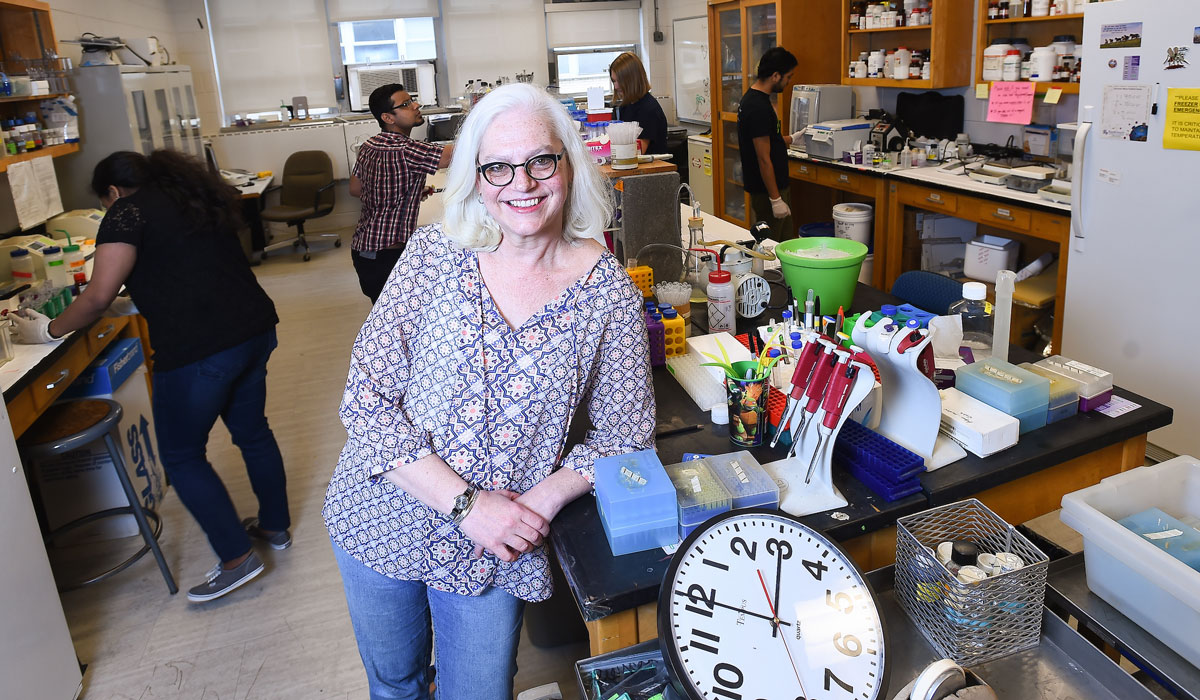

Study halls, lectures and research are a common part of any university experience. But spending time in a lab making groundbreaking scientific discovery? Not so common.
The Tuma Lab at The Catholic University of America provides exactly that opportunity to graduate, undergraduate, and even the occasional high school student eager to explore hands-on application of cellular biology.
Pamela L. Tuma, professor of biology, started the lab in 2003 in an effort to study liver damage associated with alcoholic liver disease. The goal was to find new ways to treat the early stages of liver disease in order to avoid poor prognoses and reduce the number of patients needing liver transplants.
“Consumption of alcohol leads to large changes in liver metabolism,” said Tuma. “Our recent work suggests we may have a handle on how to reverse some of those changes."
Tuma arrived at Catholic University to open her lab after spending several years as a postdoctoral fellow at Johns Hopkins University School of Medicine. From the beginning, the lab was meant to not only contribute to medical research, but also to provide an unforgettable learning experience for budding biologists.
Tuma’s first student was 16-year-old George Kannarkat, a junior at Thomas Jefferson High School in Alexandria, VA. Under the leadership of Tuma, Kannarkat contributed to three research papers before he graduated high school. Now he’s a resident in neurology at Johns Hopkins University Hospital.
Helping students like Kannarkat is one of the things Tuma enjoys most about her work in the lab.
“Our student researchers are also publishing and going to meetings; they are developing their international and national reputations at a very young age,” she said. “The kids are well-trained and have opportunities you often don’t have at larger schools.”
Tuma originally did her graduate work studying brain function, but after working with a mentor who was studying the liver, she developed a fascination with the organ.
“Everything you eat, drink, and breathe passes through your liver,” she said. “Having a healthy liver is so fundamental to living a healthy life.”
She also collaborates in her work researching the liver with her father, a biochemist formerly at the University of Nebraska Medical Center.
“It’s an incredible feeling to walk through my lab and see anywhere from five to seven students hard at work, experimenting, analyzing and recording new scientific data,” she said. “We do good stuff here.”